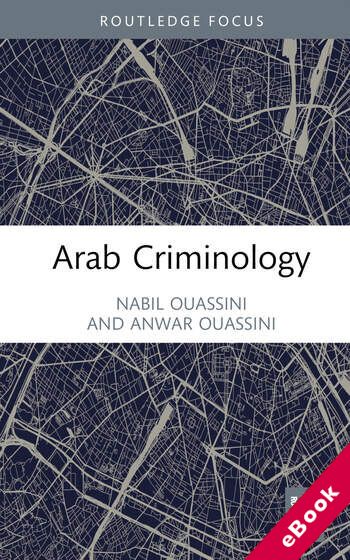
The device(s) you use to access the eBook content must be authorized with an Adobe ID before you download the product otherwise it will fail to register correctly.
For further information see https://www.wildy.com/ebook-formats
Once the order is confirmed an automated e-mail will be sent to you to allow you to download the eBook.
All eBooks are supplied firm sale and cannot be returned. If you believe there is a fault with your eBook then contact us on ebooks@wildy.com and we will help in resolving the issue. This does not affect your statutory rights.
The objective of Arab Criminology is to establish a criminological sub-field called ‘Arab Criminology.’
The ever-evolving field of criminology has advanced in the past decade, yet many impediments remain. Unlike criminology in Africa, Asia, the Americas, Europe, and Oceania based merely on geopolitical constructs, the Arab world has unique commonalities that do not exist in the other established sub-fields on criminology. The Arab world has largely remained in criminology’s periphery despite the region’s considerable importance to current international affairs. In response, this book explores two main questions: Why should we and how do we establish a sub-field in Arab Criminology? The authors examine the state of criminology in the Arab world, define its parameters, and present four components that bond and distinguish Arab criminology from other criminological area studies. They then identify the requirements for establishing Arab criminology and detail how local, regional, and international researchers can collaborate, develop, and expand the sub-field. Arab Criminology will challenge some of the recurrent Orientalist and Islamophobic tropes in Northern criminology and progress the discipline of criminology to reflect a more diverse focus that embraces regions from the Global South.
Presenting compelling arguments and examples that support the establishment of this sub-field, Arab Criminology will be of great interest to Criminology, Criminal Justice, Legal Studies, and Middle Eastern/North African studies scholars, particularly those working on Southern Criminology, Comparative Criminology, International Criminal Justice Systems, and Arab studies.